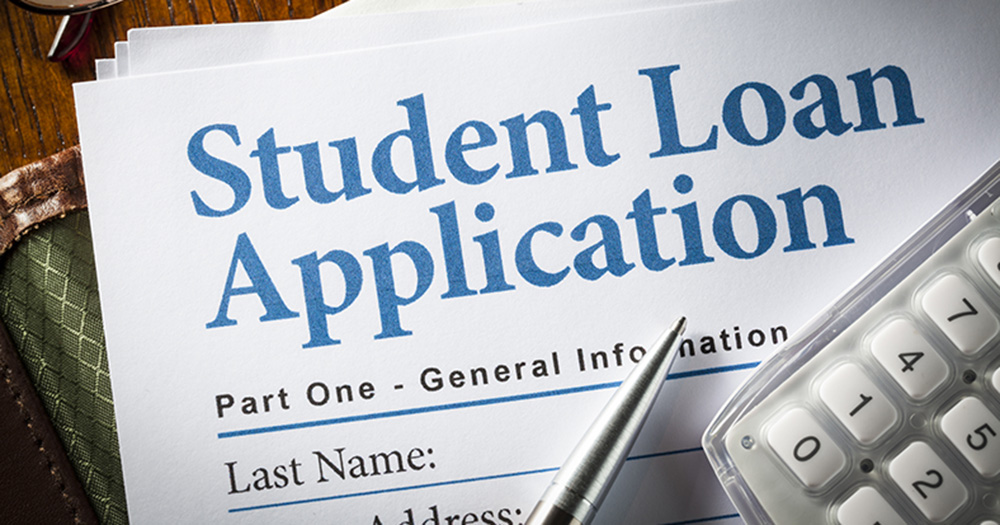
Loans
Navigating your educational journey means making informed financial decisions along the way. Use the information below to determine whether student loans are right for you.
Explore Your Options

FAFSA: A One-Stop-Shop for Federal Loans
FAQs About Loans
Complete the FAFSA®. If selected for verification, submit requested information in a timely manner. You will need to complete Entrance Loan Counseling electronically and sign the Master Promissory Note (MPN). The MPN is your legal agreement to the terms of the loan and is a promise you will repay the loan(s) and any accrued interest and fees. You will need to apply for financial aid every year. Federal regulations also require that all students who receive a federal student loan must Complete Student Loan Exit Counseling prior to graduation or before dropping below half-time attendance.
Based on federal guidelines, WCJC will determine the loan type and amount a student is eligible to receive each academic year.
You should monitor your student account using the Online Services feature on the WCJC website. Information will not be released via telephone due to privacy laws. Financial aid funds will be applied to your college account after the official enrollment date (Census Date) of each semester. Federal and college funds will be applied at this time only for those students who have completed all requirements for the financial aid process. If you have more financial aid than your total college charges, the balance will be issued as a refund. The Business Office will deduct what you owe for tuition, fees, and books and the balance will be mailed to you or deposited into your bank account if you are enrolled in e-Refund. You are responsible for monitoriing your student email and maintaining a valid address with the Office of Admissions and Registration.
Most federal student loans have loan fees which are a percentage of the total loan amount. You are responsible for paying the entire amount you borrowed and not just the amount you received.
WCJC works with Loan Science, a leader in the federal student loan management industry, to better assist you in making wise repayment choices. We encourage you to take advantage of their dedicated staff of trained loan counselors to assist in answering questions, understanding your payment schedule, or resolving any repayment challenges that may arise. Questions about how to best manage your federal student loans can be answered by contacting Loan Science directly at:
Phone: 866.311.9450
Email: loansupport@loanscience.com
Please identify that you are a WCJC student or former student when speaking with Loan Science Staff.
WCJC returns unearned funds received from Federal Student Aid programs to the proper
program accounts or lenders in accordance with Federal Title IV Student Aid regulations,
as amended, under 34CFR, section 668.22(d) of the Reauthorization of the Higher Education
Act of 1965 and within the rules of the Texas Higher Education Coordinating Board.
The student receiving assistance from Federal Title IV programs is required to complete
a minimum number of hours for which assistance was received. If the student completely
withdraws from school during the semester, or quits attending, but fails to officially
withdraw, the student may be required to return the unearned part of funds that were
received to help pay educational expenses for the semester. Information about the correct procedure for officially withdrawing from or dropping
classes can be found on the Office of Admissions and Registration webpage.
A student's liability for the return of Federal Title IV funds will be determined according to the following guidelines:
- If a student completely withdraws from all classes before completing 60% of the semester, a prorated portion of the federal aid received must be returned to the federal aid programs equal to the percentage of the semester remaining.
- If a student does not officially withdraw from classes but stops attending all classes, a prorated portion of the federal aid received based on the documented last date of attendance must be returned to the federal aid programs.
- If a student earns failing (“F”) grades in all courses during a semester, the student will be subject to the Return to Title IV guidelines listed in the sections above. A student in this scenario will need to document with the course instructor(s) the last day of attendance, or it will be assumed the student only attended to the 50% point of the semester. This student will be liable for repayment under the Return to Title IV Funds process.
- Return to Federal Title IV funds will be distributed according to statutory regulations. Worksheets provided by the U.S. Department of Education will be used to determine the amounts and order of return. If a student’s share of the return amount exists, the student will be notified and allowed 45 days from the date of determination to return the funds to the WCJC Business Office for deposit into the federal programs accounts. If the student does not return the amount owed within the 45-day period, the amount of overpayment will remain on the student’s account and a hold will be placed on all student files including access to (all) transcripts and registrations.
- If a student remains enrolled and attends class beyond the 60% mark of the semester in which aid is received, all federal aid is considered earned and not subject to this policy.
Boost Your Financial Literacy

